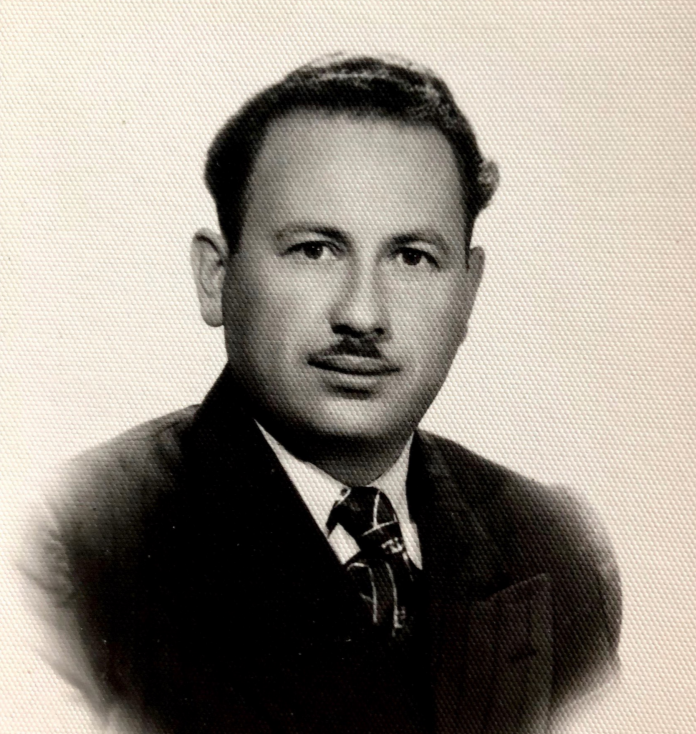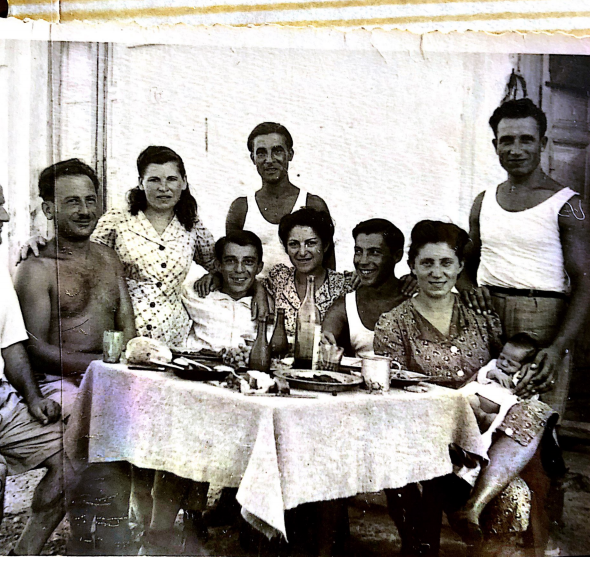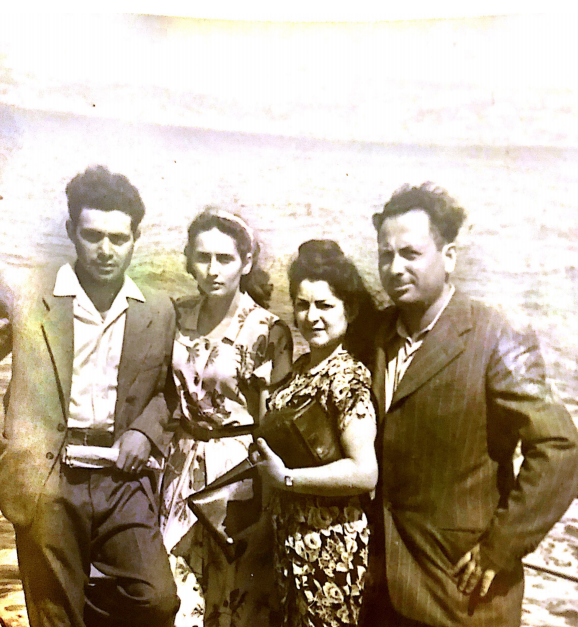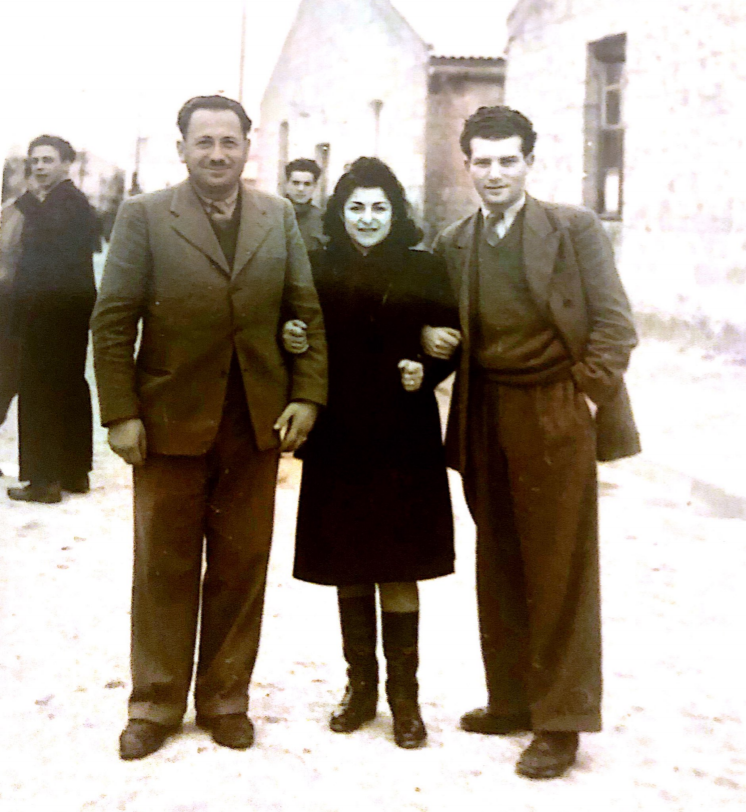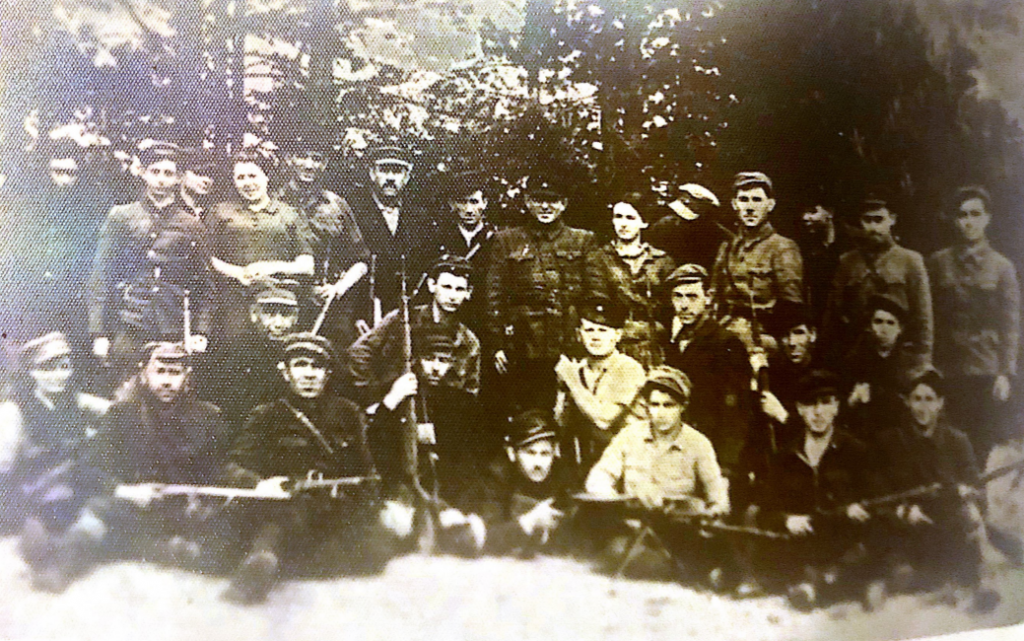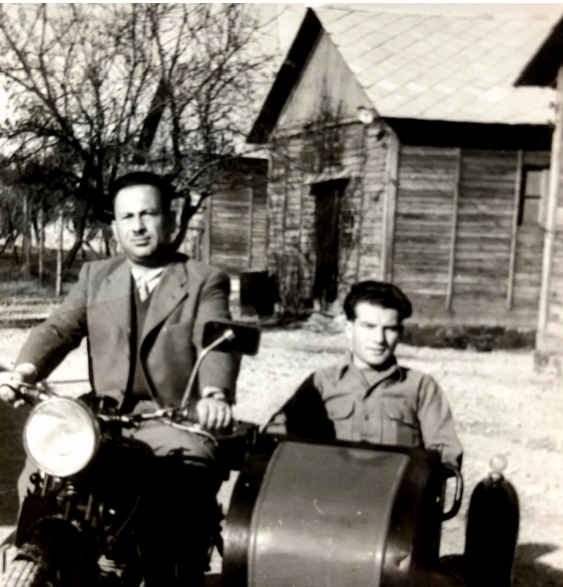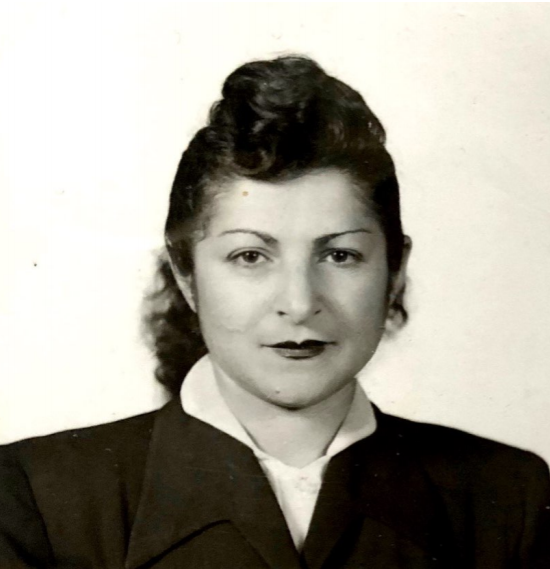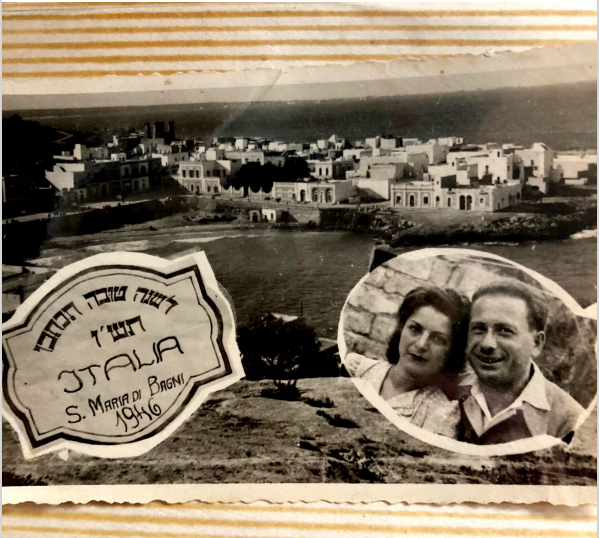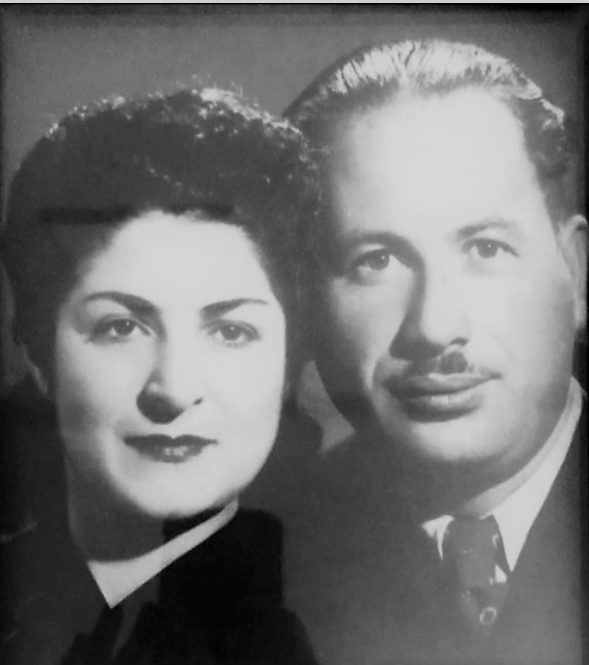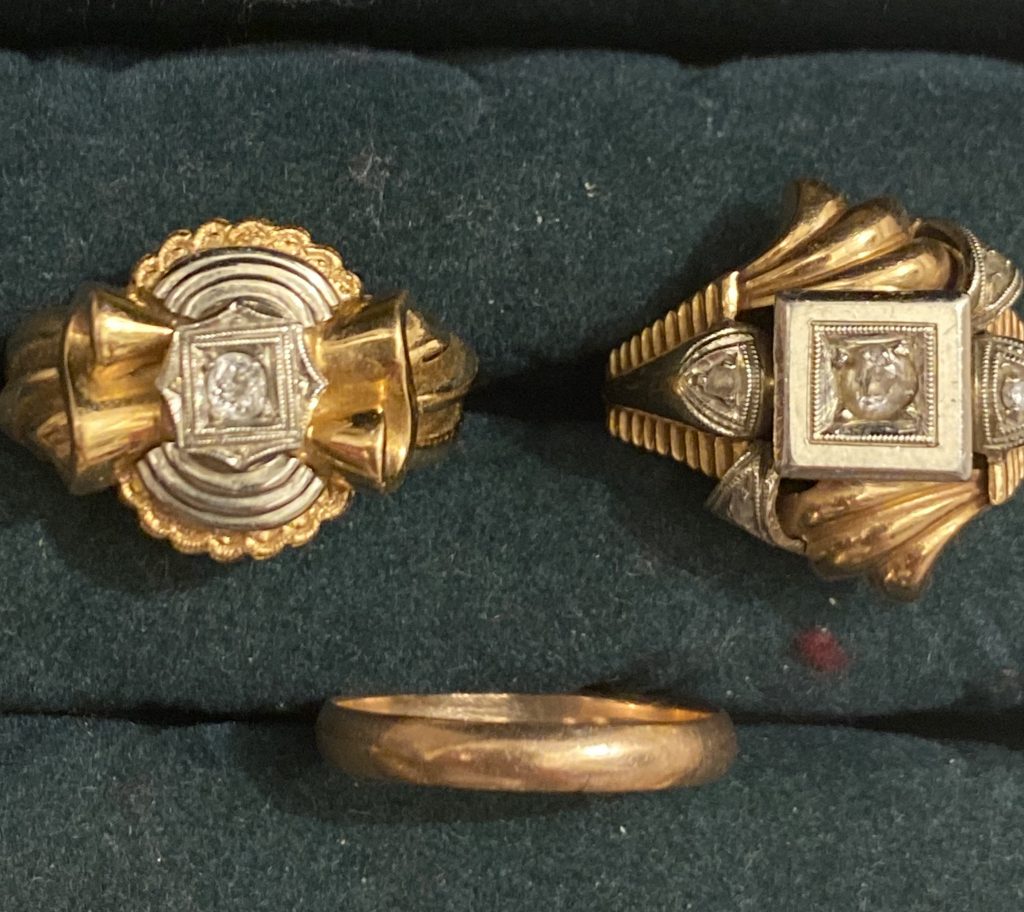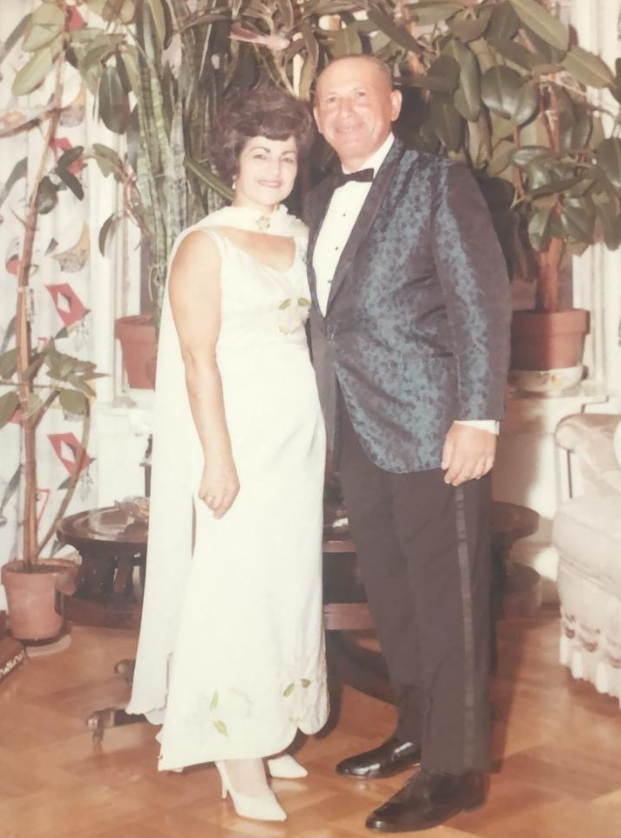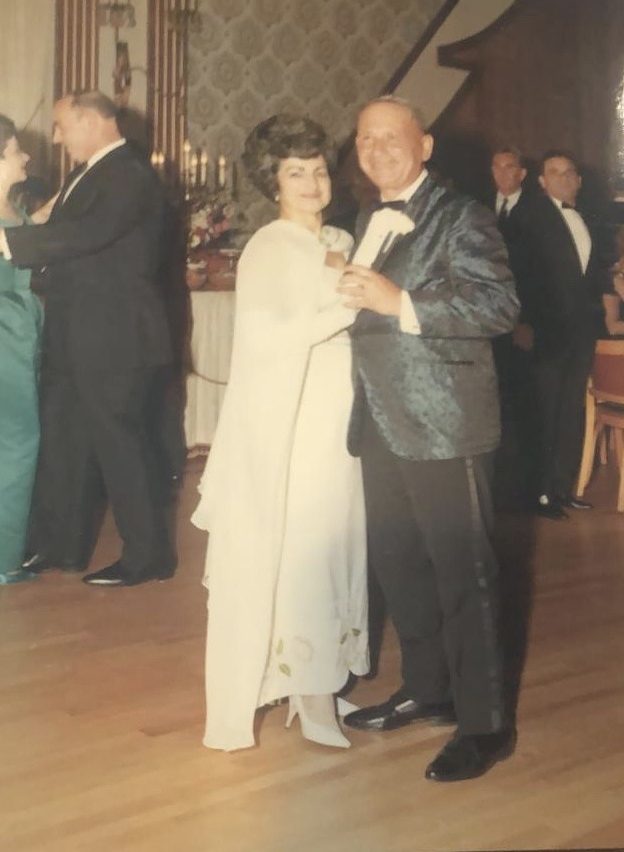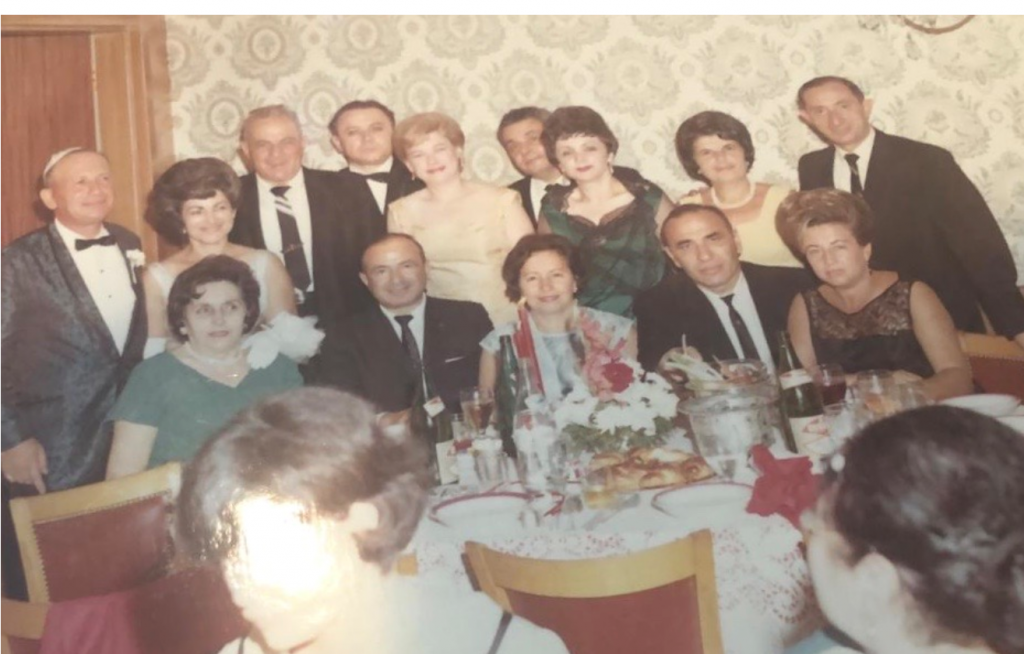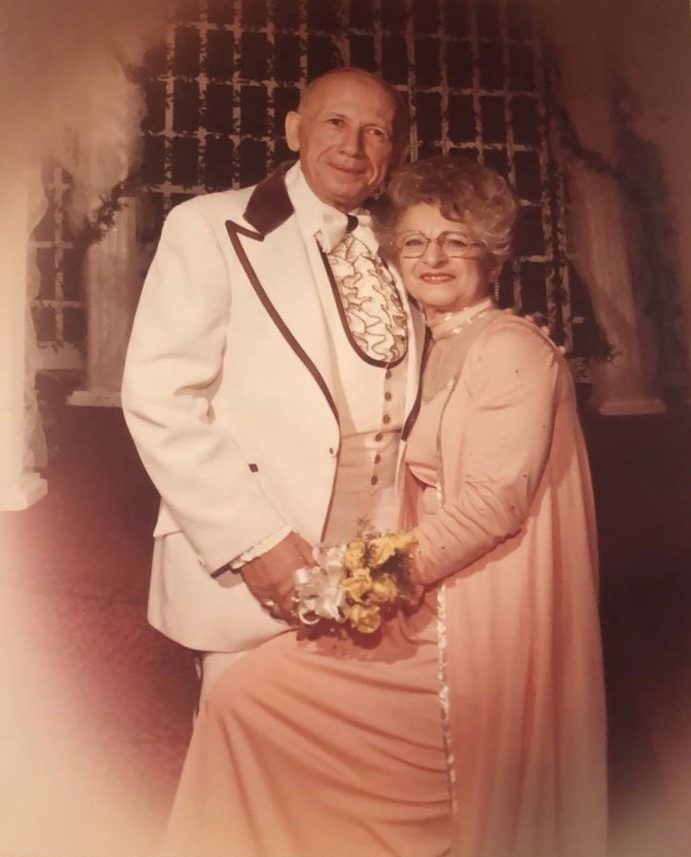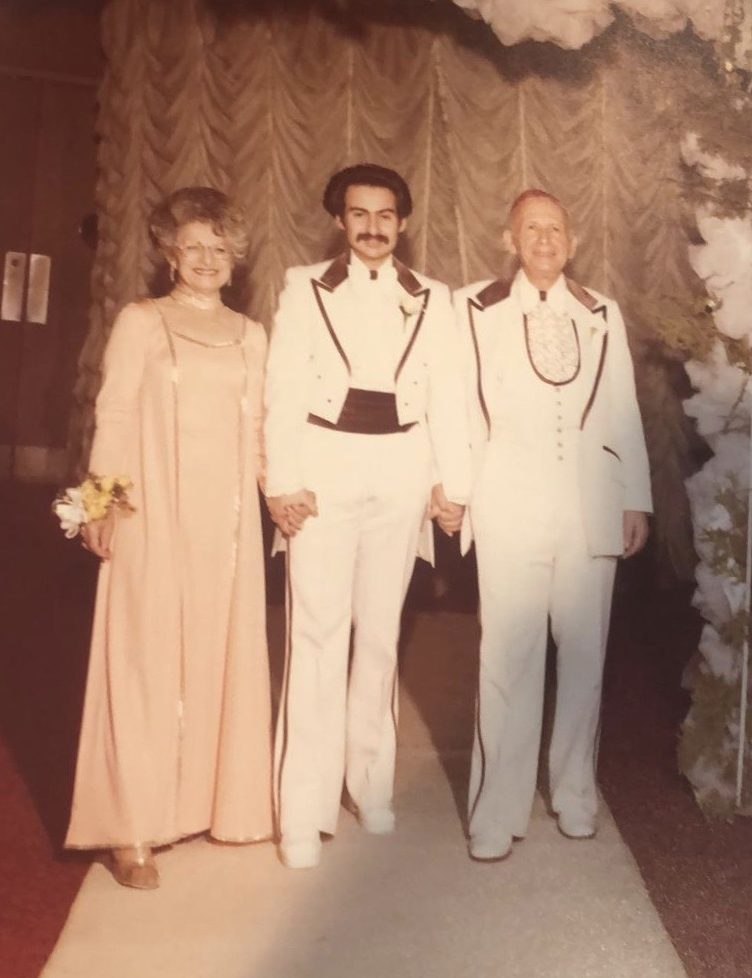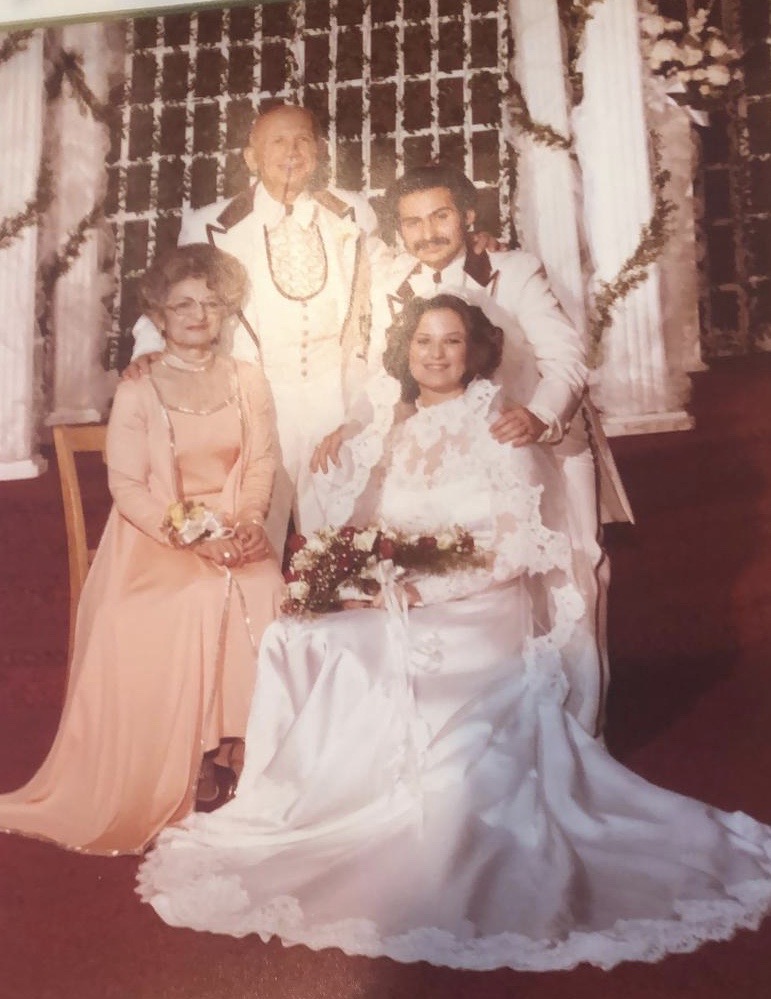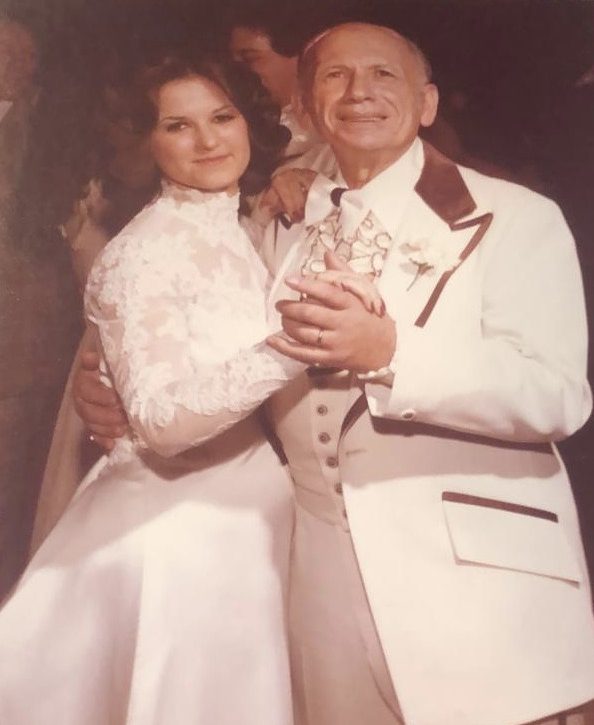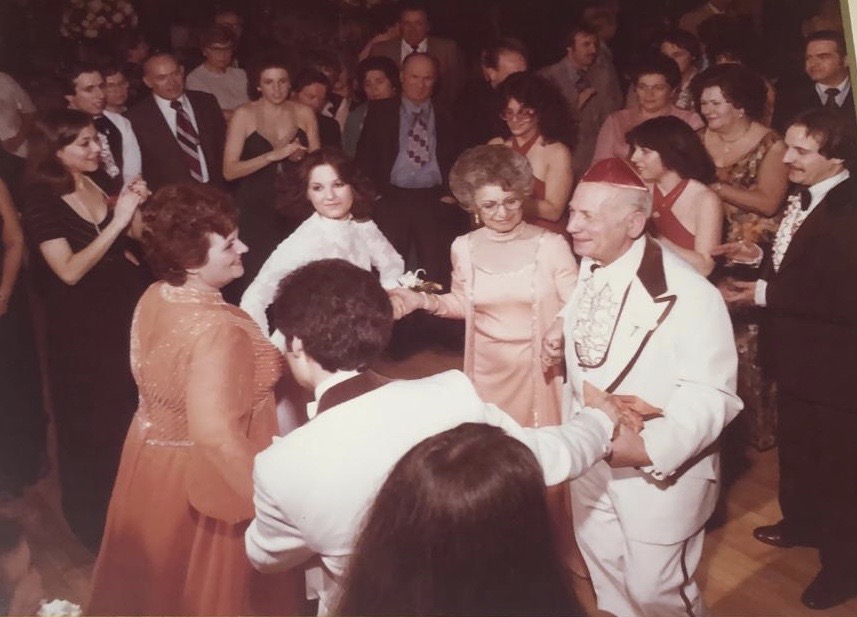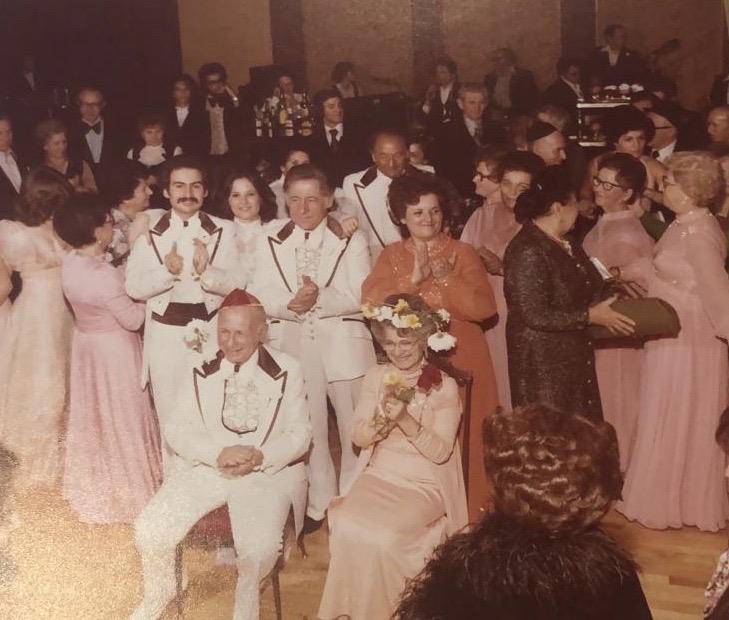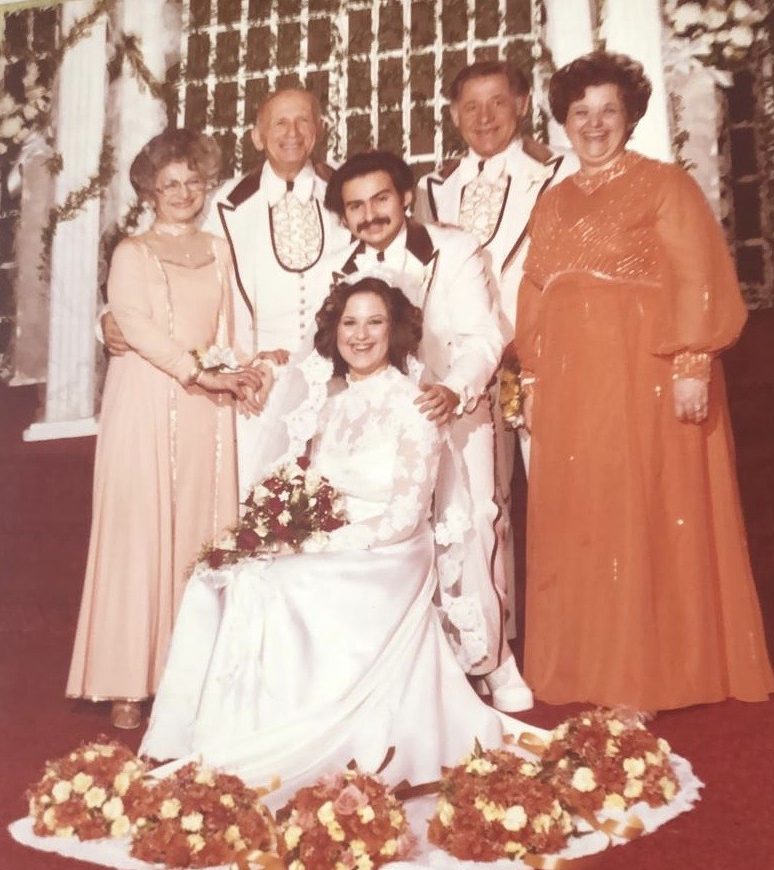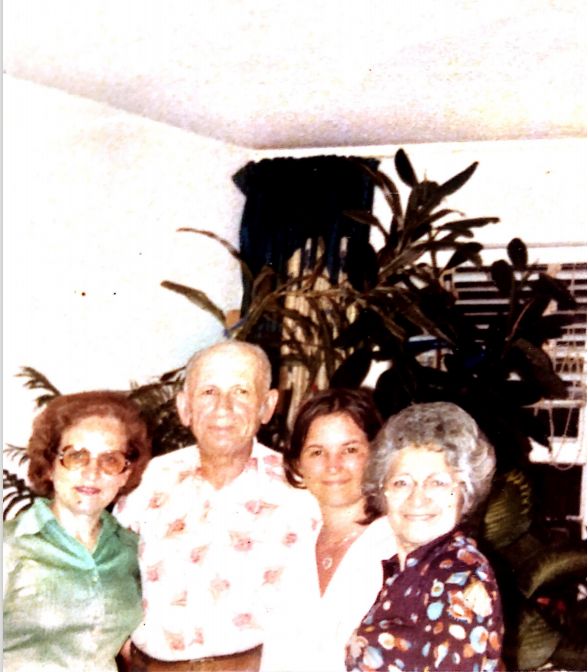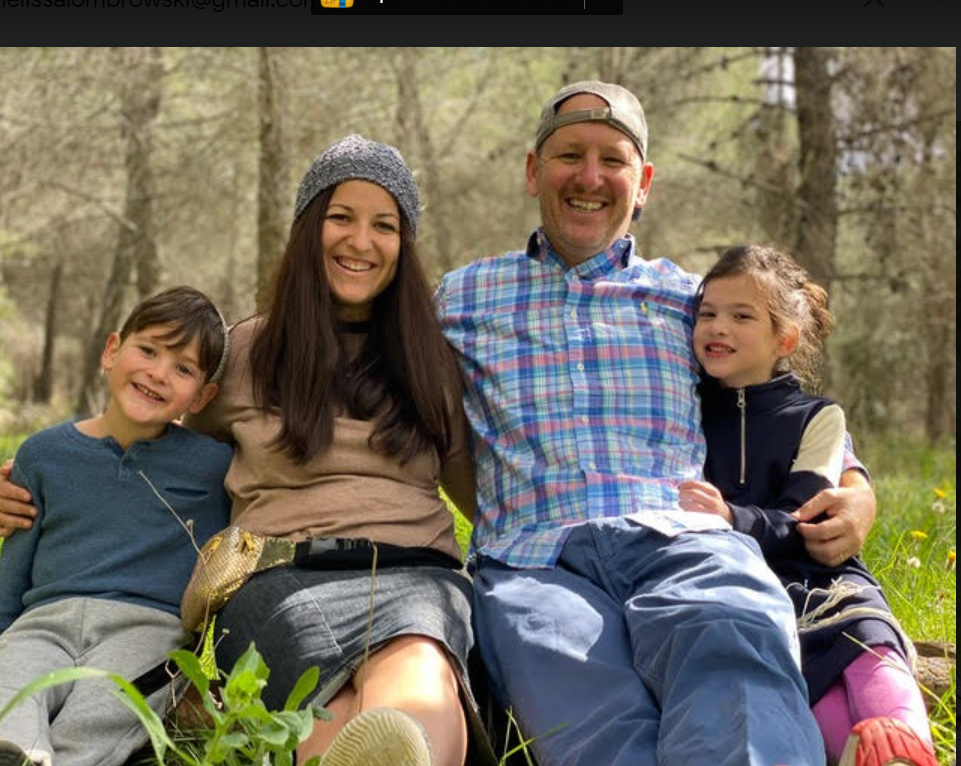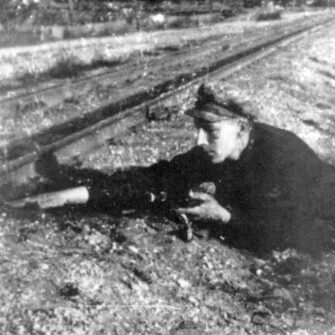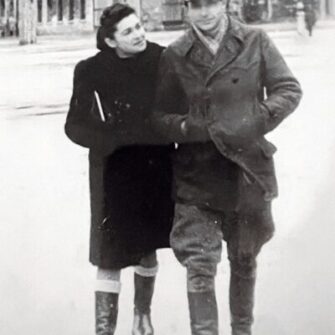Benjamin Lombrowski (Inoma Dombrovsky) was born on January 10, 1916, in the small village of Deretchin, Poland, which was formerly in the area of Novogrudok. He lived with his parents, Shlomo-Mordechai and Badaneh, along with four siblings: Yehudah, Golda Feiga, David, and Shimon.
When the war broke out in 1939, Benjamin was twenty-three years old and working as a carpenter. His carpentry trade saved his life when the Germans occupied Poland and were in need of his expertise. One day, the Germans gathered fifteen Jewish men from Deretchin and took them to the nearby town of Slonim where Jewish workers were forced to construct buildings for the Germans, along with a large house for the Gebietskommissar. The Judenrat (Jewish Council under German control) supplied them with housing on Podgornoy 17.
During that time, Benjamin saw the Nazis riding on horses throughout the city and marking numbers on specific homes. On Shabbat, the Germans locked Benjamin and the other workers inside a garage for the weekend. When they were released, Benjamin saw what had happened over Shabbat; Slonim’s 10,000 Jews were either shot into a pit or sent out of the city to their deaths. All the streets and homes were covered in Jewish blood.
As soon as Benjamin had the opportunity, he ran 35 kilometers back to Deretchin to inform his family what had happened in Slonim. His father told Benjamin and his brothers to run into the woods, hoping that one of them would survive. Benjamin described the last day with his family as a personal Tisha B’av. That was the last time he saw his parents, Yehudah, Golda Feiga, and David’s wife and family. Benjamin, David, and Shimon fled to forests where they tried to survive.
David had previously repaired weapons for the Germans, allowing him to steal guns. This proved extremely helpful to the three brothers during their first days in the woods. They lived deep in the forest for a period of time. They were able to smuggle enough food from the town of Monkovitz to keep themselves alive for seven months. They made it a priority to get more weapons to protect themselves from both Germans and unfriendly Poles.
One bright morning, the brothers saw three Russians in the forest. They approached them and asked for weapons in exchange for money. The two parties agreed to meet at the riverbank in the evening to purchase the weapons. A ferry was waiting at the riverbank. From a distance, they noticed a person standing on the boat without a head covering. As they got closer, they also noticed two revolvers sticking out of the person’s pocket.
The brothers worried that it might be a German spy so they decided to approach him carefully, jump on him, and drown him in the river. Benjamin’s seventeen-year-old brother, Shimon, had a strong build. “Let me go in first; from my hands, he won’t escape,” he threatened. The brothers neared the ferry, their senses focused on this unknown person as he focused on them. All of a sudden, the man spoke to them in Hebrew: “Are you Jews? Acheinu b’nai yisroel.” When the brothers replied yes, the stranger introduced himself as Dr. Atlas and told them that “times have arrived to establish a Jewish partisan movement and avenge our spilled blood.”
Dr. Atlas informed them that he was organizing a group of Jewish fighters. Benjamin and his brothers decided to help organize the unit. As they approached the partisan camp, Dr. Atlas whistled, giving the group’s special code. Out of the forest came the man on guard; it was Heshel Beshken, a friend of the Dombrovskys from Deretchin. The group also included two more of their friends, Moshe Chaim Orgulnich and Nissel Miller. They were all extremely happy to be reunited as the brothers were led to their new home in the forest.
Their partisan unit completed many successful missions in sabotaging German supplies and communication. After Dr. Atlas was killed in battle, the group merged with a Soviet partisan regiment. Benjamin went on to join the Bielski Brigade, an all-Jewish partisan group, as a high-ranking commander. Armed with a machine gun, he went on countless missions with the Bielskis and was victorious in battle.
During a major battle with the Nazis in the forest, Benjamin’s horse was shot multiple times. Benjamin saw the bullets whizzing past him but miraculously was not hit as his horse managed to bring him to safety before it died.
During his time in the partisans, Benjamin met his wife Sonia Szumanski (nee Lazowski) who was born on October 25, 1917, in Dvoretz, Poland. After spending two and half years as partisans, Benjamin and Sonia moved to a Displaced Persons camp in Bari, Italy where they were married in 1946. Benjamin wanted to immigrate to Israel and help fight for its Independence. However, Sonia had seen enough death and wanted to live in peace.
In 1949, the couple immigrated to the United States and settled in Brooklyn, New York where they raised their son, Steven. Benjamin worked as a carpenter in Brooklyn and stayed very close with his partisan family. Benjamin openly spoke about the war with his family, teaching them to be proud of their Jewish identity. He was greatly involved in his community, including the Glendale Synagogue.
Benjamin passed away in 1978 at the age of sixty-two. He is survived by his son Steven Lombrowski, two grandchildren Brian and Melissa, and four great-grandchildren: Benjamin, Chana Kayla, Lucy, and Margo. Benjamin’s granddaughter Melissa lives in Israel and named her son Benjamin in honor of her grandfather. He will one day serve in the Israeli Army where his great-grandfather had hoped to serve himself.

